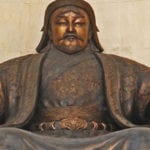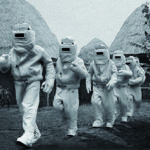 Mysteries
Mysteries  Mysteries
Mysteries  History
History 10 Surprising Stories About the Texas Rangers
 Humans
Humans 10 Philosophers Who Were Driven Mad by Their Own Theories
 Miscellaneous
Miscellaneous 10 Video-Game-Worthy Weapons and Armors from History
 Weird Stuff
Weird Stuff 10 Psychics Who Accurately Predicted Wartime Events
 The Arts
The Arts 10 Pieces of Art Inspired by a Broken Heart
 Health
Health 10 Science Fiction-Sounding New Medical Treatments
 History
History 10 Surprising Facts About the Father of Submarine Warfare
 Space
Space Ten Astonishing New Insights into Alien Worlds
 Weird Stuff
Weird Stuff 10 Bizarre Summer Solstice Rituals Still Practiced Today
 Mysteries
Mysteries Top 10 Haunting Facts About the Ghost Ship MV Alta
 History
History 10 Surprising Stories About the Texas Rangers
 Humans
Humans 10 Philosophers Who Were Driven Mad by Their Own Theories
Who's Behind Listverse?

Jamie Frater
Head Editor
Jamie founded Listverse due to an insatiable desire to share fascinating, obscure, and bizarre facts. He has been a guest speaker on numerous national radio and television stations and is a five time published author.
More About Us Miscellaneous
Miscellaneous 10 Video-Game-Worthy Weapons and Armors from History
 Weird Stuff
Weird Stuff 10 Psychics Who Accurately Predicted Wartime Events
 The Arts
The Arts 10 Pieces of Art Inspired by a Broken Heart
 Health
Health 10 Science Fiction-Sounding New Medical Treatments
 History
History 10 Surprising Facts About the Father of Submarine Warfare
 Space
Space Ten Astonishing New Insights into Alien Worlds
 Weird Stuff
Weird Stuff 10 Bizarre Summer Solstice Rituals Still Practiced Today
10 Historical Oddities You Don’t Know
History can be exciting with tales of big battles and heroes and adventure, or it can be dull when reduced to simple dates and dry details. One way to bring history to life is to focus on interesting facts which bring the past to life. Here are ten lesser-known historical facts which I hope you’ll find interesting.
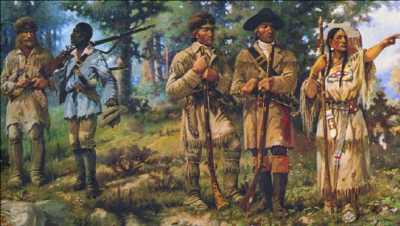
The Lewis and Clark expedition was sent out by President Jefferson to cross the continent of America. They were to make scientific discoveries and contact the native Americans. Because they were to be gone for so long it was necessary to train them in medicine so that they could treat illness and injury. Benjamin Rush, famous doctor and founding father, was a key advisor. He was a keen advocate of purgatives and laxatives. To clear out the bowels of the expedition he provided them with his own invention, Bilious Pills. These contained a large amount of mercury. They were so effective as laxative that the expedition termed them Thunder Clappers. The problem with mercury is that it remains in the environment for a very long time. When the expedition used the pills they left such large amounts of mercury in the ground that later archaeologists have been able to identify the path of the expedition by the levels of the metal still remaining from the Thunder Clapper purges.
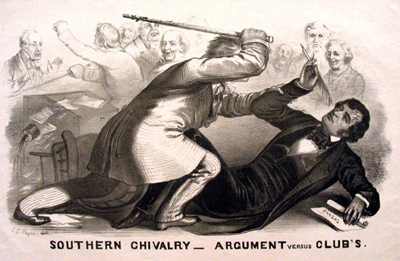
It is a common complaint, especially in election years, that politics has become too divided. Today even slight criticisms are thought to be devastating. In the past politics was a lot less dainty. When Senator Sumner made a speech attacking “the harlot Slavery” Senator Preston Brooks, representing the pro-slavery South Carolina, took offense. Two days later, on the floor of the senate chamber, Brooks approached Sumner and began to thrash him with a heavy walking stick. When other senators attempted to stop the beating, an accomplice of Brooks held them off with a pistol. Sumner was beaten unconscious, the injuries he suffered affecting him for the rest of his life. It was three years before Sumner was able to return to his duties. Brooks was re-elected and hailed as a hero in the pro-slavery south.
Because Brooks had broken his cane in the attack he was inundated with gifts of replacement walking sticks by admirers.
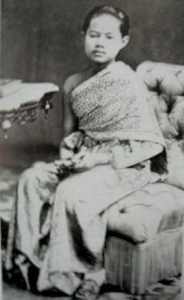
In many cultures certain people are held to be taboo; that is, they are not to be touched. In 19th century Siam, it was absolutely forbidden for a commoner to touch the queen. To break this rule carried the death penalty. One day Queen Sunandha Kumariratana was in a boat which capsized, plunging her into a river. Though there were many people who might have come to her aid it would have meant their own death to touch the royal body. She died at the age of 19 along with her daughter.
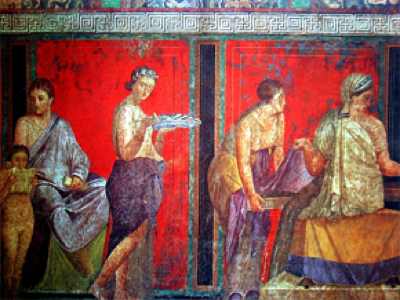
In the ancient world the color purple was a rarity. The word purple derives from the Latin Purpura, and that from the Greek Porphrya. The Greeks knew only one source of a purple dye, a secretion of a certain type of sea snail. To make up any significant amount of dye it was necessary to harvest vast quantities of snails. This made the resulting dye hugely expensive. For centuries only the very rich could afford purple. In many cultures the color became so associated with royalty that commoners were banned from wearing it.

Only one person can claim to be the first person to have been born on a continent. Emilio Palma was born at the Esperanza Base in the Antarctic in 1978. His birth was planned by the Argentine government to bolster their claim to a region of Antarctica. When heavily pregnant, his mother was flown to the base for the birth. Unfortunately it failed to have much effect on the international scene, though made for an interesting anecdote.
On a side note of continental births: the first European to be born in the Americas was born around 1005 in the Norse settlement of Vinland. He went by the great name of Snorri Thorfinnsson.

It is well known now that the people of the ancient world were well aware that the Earth was not flat. Even looking at the horizon of the sea it was possible to see the curvature of the Earth as ships fell below the horizon. What is less well known is how accurately they knew the circumference of the planet. Eratosthenes, a Greek mathematician who lived in the 3rd century BC, using only sticks and the shadows they cast, was able to calculate the circumference of the Earth to a size of 25,000 miles. This compares to the actual (polar) circumference of 24,860 miles.
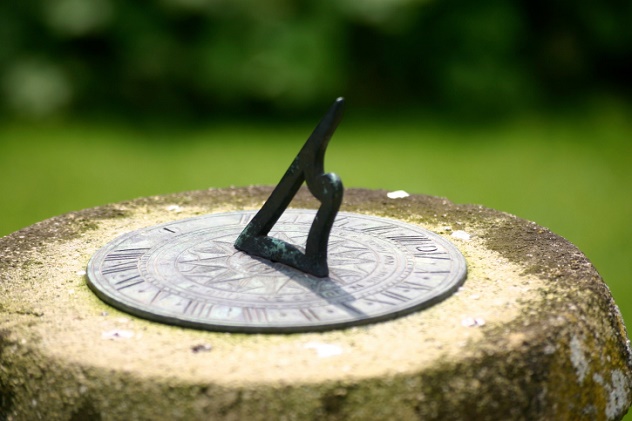
We all know what the terms clockwise and anti-clockwise mean. But why do clocks move in the direction they do? The answer is based on tradition. Long before mechanical clocks were invented, sundials were the best way of estimating the time of day. In the Northern Hemisphere, the direction of a shadow on a sundial will move clockwise due to the Earth moving in an anti-clockwise direction when viewed from the North Pole. When mechanical clocks were invented they were modeled to be similar to sundials and so we still use the movement of the sun in the way we read the time.
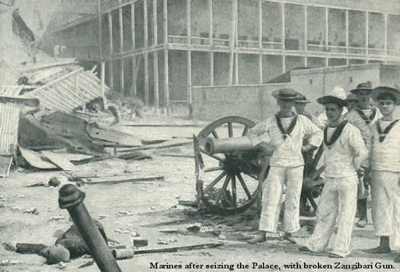
The Anglo-Zanzibar war of 1896 is the shortest war on record lasting an exhausting 38 minutes. After the death of the pro-British sultan Hamad he was succeeded by his nephew Bargash. The British favored another candidate. With Bargash in the sultan’s palace refusing to abdicate the British gathered a fleet in the harbor beside it. An ultimatum was delivered requiring Bargash to step aside by 9am on the 27th of August. When no reply was received the British opened fire at 9:02. The entire fleet of Zanzibar, a single royal yacht, was sunk and the palace caught fire. The sultan’s flag was removed and the firing stopped at 9:40. By the afternoon the pro-British Hamud bin Muhammed was in place as the new sultan. The supporters of Bargash’s short sultanate were forced to pay for the cost of the shells shot by the British.
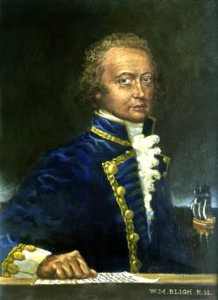
Poor William Bligh has gone down in history as a tyrannical captain, mainly due to various film depictions of him. The mutiny on the Bounty in 1789 is the one fact that has become associated with him. Most people at the time blamed the mutiny not on Bligh being too strict with his men but rather being too lax. Unfortunately Bligh seems to have been a magnet for rebelliousness. In 1797 his crew again rebelled, as part of a larger mutiny. After this was settled there was a second mutiny in 1797 which involved Bligh’s ship. While neither of these mutinies focused on anything Bligh was responsible for, it set up a pattern which was to shape his memory. Perhaps because of his now extensive experience with rowdy crews he had hardened his style of command. The now harsh Bligh was made governor of New South Wales in 1806. He antagonized several important people in the colony and in 1808, in a mutiny known as the Rum Rebellion, Bligh was arrested and held captive for two years.
Had these mutinies not occurred Bligh would be best known today for the transplantation of the bread fruit to the West Indies.
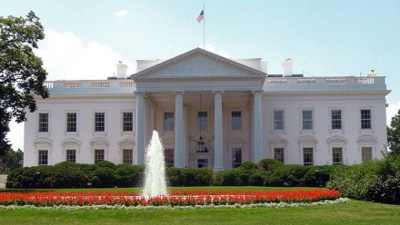
I recently wrote a list with unusual facts about the US presidents. While the human occupants of the White House have been occasionally bizarre there have been an equal number of strange animal residents. John Quincy Adams used to keep an alligator, a gift from the Marquis de Lafayette, in a bathtub. Calvin Coolidge kept a pygmy hippo called Billy, an ancestor of many of the pygmy hippos to be found in US zoos today. It should perhaps be no surprise that the legendarily pugnacious Andrew Jackson kept fighting cocks. The hungry President Taft was the last president to keep cows, called Mooly Wooly and Pauline Wayne, at the White House and enjoyed drinking their milk. It would probably liven up press conferences today if the sitting president would keep bears as his predecessors Jefferson and Coolidge did.

